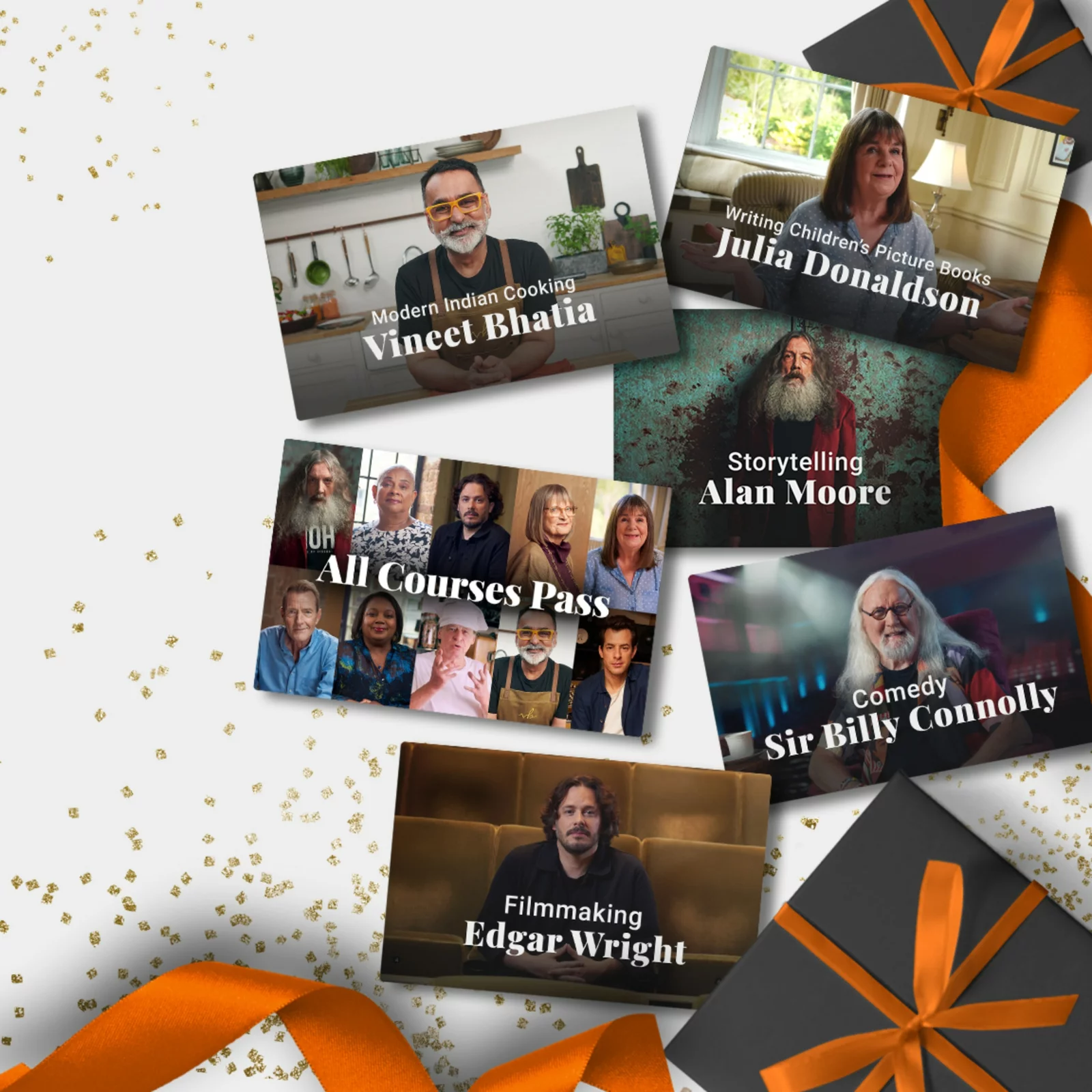
What's the difference between a screenplay and a script?
By BBC Maestro
Behind everyone’s favourite musical, play and film lies a story dreamed up by a writer. Whether it’s created for the grand stage or our TV screens, actors, production crews and editors need the right information to portray the story as close to a writer’s vision as possible.
Still, the distinction between screenplay and script sits on a fine line and causes confusion for many aspiring writers. So, what’s the difference between a screenplay and a script? And how can you tell them apart?
If writing was easy, everyone would have a fully produced film.
What is a screenplay?
If its name hasn’t given it away too much, a screenplay is a piece of writing written with the intention to be brought to life on the screen. A screenplay is mainly the chosen form for feature films, television shows and documentaries. Some writers may still refer to these as scripts at times – particularly if they are referring to pilot scripts for television.
“When you’re writing a script [for the screen], you’re painting a picture of what’s going on,” says Line Of Duty writer Jed Mercurio. He reminds aspiring TV writers that screen editors and production crews won’t know the story as well as you do, so ensure to include enough detail about what is happening in each scene.
Screenplays can be original works by writers or adaptations of books or stories prepared for the screen. The famous movies Citizen Cane by Herman Mankiewicz and Orson Welles, Allan Ball’s American Beauty, and Danny Rubin’s Groundhog Day, are all examples of original works. Examples of screenplays adapted from literary works include Mario Puzo’s The Godfather, Charles Webb’s The Graduate, and the BBC’s adaptation of Sally Rooney’s Normal People. You can take a look at some of these screenplay examples to get a sense of what they look like.

When it comes to writing for the screen, writer Alan Moore advises all aspiring writers to delve into some of the timeless works out there already. “Study the great directors - people like Orson Welles, Jean Cocteau, Alfred Hitchcock - who can all teach you something,” he says. “Look at the way that they do things. Look at the ways they set up scenes. Look at the ways they set up dramatic effects.”
A screenplay will have actions for producers and directors throughout the piece. Many differ depending on their scale of production. ‘Scenario’ scripts will be focused mainly on what’s happening in that scene. When scenes get a little more complicated ‘continuity scripts’ are often used. These are heavier on the directions to producers and editors – signalling title cards, subtitles, and filming techniques to ‘fade in’ and out of scenes. Eventually, you'll have the ‘master scenes’ format that divides the screenplay into scenes based on their different locations – this approach is widely adopted today.
“If you should find yourself writing for the screen – whether that be cinema or television – I would advise that you acquaint yourself with cinematic language,” says Alan Moore. We’ve compiled a list of some of the terminology used by screenwriters to help get you started.
Key characteristics of a screenplay are:
- Slug lines – used to divide up screenplay scenes by location. These are often formatted using the terminology INTERIOR (INT), EXTERIOR (EXT), LOCATION – NIGHT OR DAY. An example might be ‘INT. JENNIE’S HOUSE – DAY’
- Characters and dialogue – whenever a character is introduced, you’ll see their name in all caps and centred in the middle of the page on that line. Their dialogue will sit beneath this.
- Parentheticals – these are used to indicate what a character is feeling but doesn’t want to say. They’re used in between their name and their dialogue to help inform how that character should act. Parentheticals are also used generally to signpost important directions. An example may be (CONT’D) or if someone is on a phone call, that character will be introduced as NEW CHARACTER (O.S.) meaning ‘off-screen’.
- Writing shots – these are the signals to the person working the camera ‘FADE IN’, ‘FADE OUT’, ‘CLOSE UP’ etc, helping to signpost their vision.

What is a script?
A script can be meant for many different types of mediums – musicals, plays, or even radio broadcasts. They often feature more character dialogue and stage directions than a screenplay, as they require fewer off-camera details.
Scripts are slightly different to screenplays because of their varied uses. Play scripts and musical scripts tend to follow similar trajectories whereas radio broadcasts will be slightly different. A good broadcast writer will place focus on describing what can’t be seen or heard, unlike films and musicals where audiences can often see what they need to themselves or be guided to it by actors. Unlike radio scripts, scripts for plays will often be divided into acts and then scenes. To get a feel for the different types of scripts, there are plenty of free resources out there. You can explore scripts for plays, radio drama or radio comedy even.

Key characteristics of a script are:
- Scene setting - the location the scene is taking place in. In a play or musical this may be written as a detailed paragraph at the start of the scene. It can include who is present in the scene and details of the surrounding environment.
- Stage directions - what’s physically happening on screen or stage.
- Character dialogue - Similar to a screenplay, characters’ names will be placed next to their dialogue, making it clear who is talking and what they are saying. Dialogue lines are the main vehicle for moving the story forward.
- Actor directions – these are instructions to actors who are performing. They may indicate an action for them to conduct. It could be something as simple as exiting the scene or stage, or something more definitive such as punching another character.
So, although a screenplay and script appear similar, they do have a few key distinguishing factors that set them apart. But both require careful crafting from writers to let your audiences know everything they need to understand your story and enjoy it too.
Why not try writing your own screenplay or script for the stage? You never know, your name could be the next one hitting Hollywood screens or the West End. Check out the BBC Maestro filmmaking course by filmmaker Edgar Wright.
FREE video lesson: How to turn inspiration into great TV

Give the gift of knowledge
Surprise a special someone with a year's access to BBC Maestro or gift them a single course.